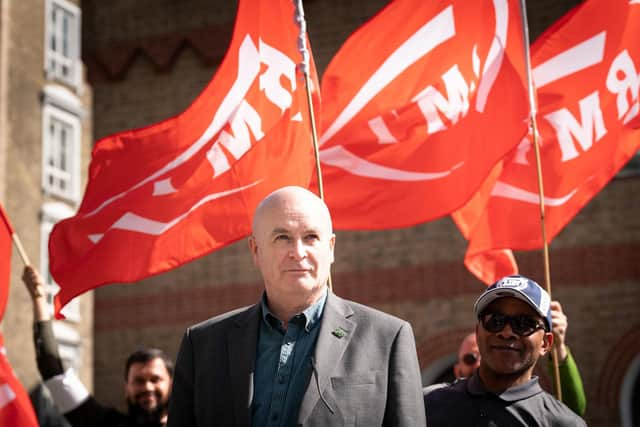Rail strike travel 'chaos'? As RMT wins SNP support, here are some important facts about the strike and what it means for the travelling public – Alastair Dalton
But significantly, some of the strongest words have come not from those directly involved, but the Scottish Government, angry that Scotland has been disproportionately affected by the stoppages even though ScotRail staff are not involved.
Deputy First Minister John Swinney has accused the UK Government of “deliberately inflaming the situation”, while transport minister Jenny Gilruth said its approach to the dispute “appears to be motivated by ideology rather than practicalities”.
Advertisement
Hide AdAdvertisement
Hide AdTheir intervention adds an extra dimension to this long-brewing row between Westminster ministers and the Rail, Maritime and Transport union (RMT).
Even though the dispute is with UK Government-owned track and signalling body Network Rail and English-based train operators, those organisations have so far played second fiddle to Conservative ministers, despite the politicians claiming not to be directly involved.
The Scottish Government clearly has a political interest, seeking more powers over Network Rail, but its comments will provide more power to the elbow of the RMT, which appears to have also attracted a fair amount of public support, so far.
General secretary Mick Lynch is also having a good dispute to date, making mincemeat of his opponents in several interviews.


In a tweet on Tuesday which had attracted more than 95,000 likes by yesterday, actor Hugh Laurie observed: “I don’t know enough about the rail dispute. I only observe that RMT’s Mick Lynch cleaned up every single media picador who tried their luck today.”
Aside from pay, the core of what’s at stake is the threat of compulsory redundancies at Network Rail as part of the organisation’s drive to “modernise” and become more efficient.
With an ageing workforce, it hopes to reduce its headcount by 1,500 voluntarily, and through greater use of technology to monitor the network.
Other planned measures include creating multi-skilled repair teams so track faults don’t require a succession of different teams being called out to fix the problem.
Advertisement
Hide AdAdvertisement
Hide AdThe age-old practice of lookouts being deployed to warn of approaching trains during such work could also be abolished by temporarily closing lines instead, which I hadn’t realised already happens in Scotland in all such cases.
All that sounds logical on the face of it, but the degree to which staffing is cut when safety is involved is a delicate balance, especially when the official investigation in the 2020 fatal Carmont crash in Aberdeenshire exposed a catalogue of Network Rail failings.
The railways’ safety record has vastly improved since track maintenance errors led to a horrific series of derailments and multiple deaths two decades ago.
Finally, while the issues involved in the dispute are very significant and the strikes are disrupting many people’s travel, some perspective is needed so as not to exaggerate the part rail currently plays in Scotland’s transport.
It may come as a surprise to many that just four per cent of commuters travel by train, and that was pre-Covid, since when many more people have switched to working from home.
Additionally, while more than half of all travel in Scotland is by car, and three per cent by bus, rail accounts for just 0.1 per cent.
Rail strikes are significant, but they do not cause the scale of travel “chaos” portrayed in some quarters.
Comments
Want to join the conversation? Please or to comment on this article.
